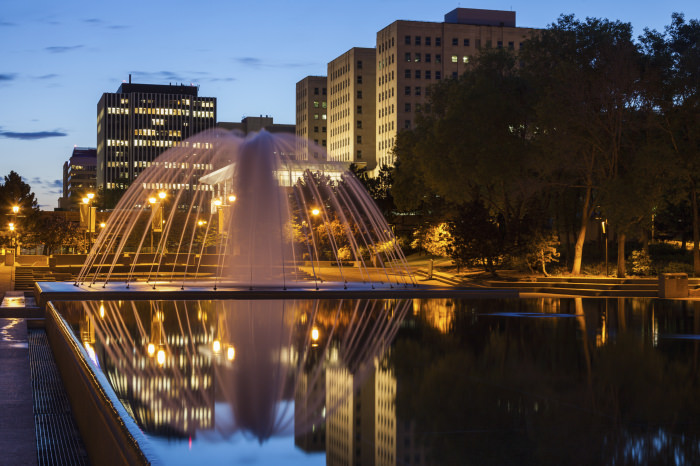Fairness Alberta launched an online campaign Monday, aiming to highlight the province’s financial contributions to the rest of the country.

The campaign states that since the year 2000, Albertans have contributed more than $324-billion to Canada’s economy, helping with the creation of social, educational, health and infrastructure programs across the country.
Now, as the province battles through the COVID-19 pandemic, members of the Fairness Alberta group are asking for urgent reforms.
“When Alberta was doing well, it was easy to ignore some of the structural and policy issues within the federation that impede Alberta’s prosperity, but the current combination of weak oil and gas markets and COVID-19 have created an economic crisis,” executive director of the group, Dr. Bill Bewick, said.
“Fairness Alberta’s objective is to provide the facts needed for the kind of informed, productive debate that can lead to essential reforms, because at this critical time we need every province in Canada firing on all cylinders — especially Alberta.”
Fairness Alberta is a newly created group, consisting of non-partisan and non-separatist Alberta citizens that aim to increase awareness around Alberta’s major contributions to Canada.
The group stated that since 2015, the province has struggled with a downturn in the energy sector, however, even with those struggles, Alberta has contributed to Ottawa an average of $18.2 billion more per year than they received between the years of 2015 and 2018.
“More importantly, we have no say in how the money is spent,” Bewick said.

Get daily National news
“We’re trying to bring transparency to how much money is at stake, how some of these federal and provincial programs work, and more importantly, how some of them don’t work and some of the negative effects that come from it.”
With its new campaign, Fairness Alberta has provided an analysis of key topics on its website, along with the Alberta Transfer Meter (ATM).
Bewick said the meter tracks the cumulative outflow of funds from Albertans to the federal government since the year 2000.
“Since 2000, Albertans paying their taxes to Ottawa have had $324 billion dollars of that spent in other provinces,” he said.
“It’s such a staggering sum that we’ve decided to break it down a little for people and say that works out to about $318,000 per Alberta family in 20 years.”
The group noted that the ATM has been paused since Dec. 31, 2019 due to the ongoing pandemic. The total number presented on the ATM was determined by Statistics Canada.
An associate professor of economics at the University of Calgary, Trevor Tombe, noted that the money received by Canada from Albertans is from a multitude of platforms.
“It’s important to remember that the money we pay to the federal government is through GST personal income taxes and corporate taxes and etc.,” he said.
In response to the downturn in Alberta’s oil and gas sectors, Tombe noted that when the province’s economy dips, so do residents’ contributions to the country.
“We don’t pay higher GST than any other places but we pay more federally because of our higher income,” he said.
“These are not payments, these are federal taxes and funding programs that operate uniformly across the country.”
Tombe also noted that Albertans see less of this money coming back to them compared to other Canadians, however, he also noted that there are several reasons for that.
“It’s about the difference between federal revenue and federal spending,” he said. “The federal government spends a lot on transfers to older people for example, and since Alberta has a younger population, that means the federal government spends less on us.”
“Since 2009, 77 per cent of the gap in federal revenue and spending in Alberta is due to income and age, however, there is less defense spending in Alberta per capita, less non-defense spending — meaning the federal government buys less stuff in Alberta than elsewhere and we do not receive equalization payments.”
Tombe also noted that 20 per cent of the fiscal gap in Alberta is also due to discretionary programs that are designed to fund lower-income regions — something Alberta does not receive due to its higher income as a province.
Bewick noted that while he believes many Albertans are proud to add their contributions to the country, he believes many people aren’t aware of just how much money they’re spending, and where it’s all going.
With this new campaign, the group hopes to create action on more support for Albertans during the current pandemic, as well as educate the public on the reality of Alberta’s continued support the rest of the county.


Comments
Want to discuss? Please read our Commenting Policy first.